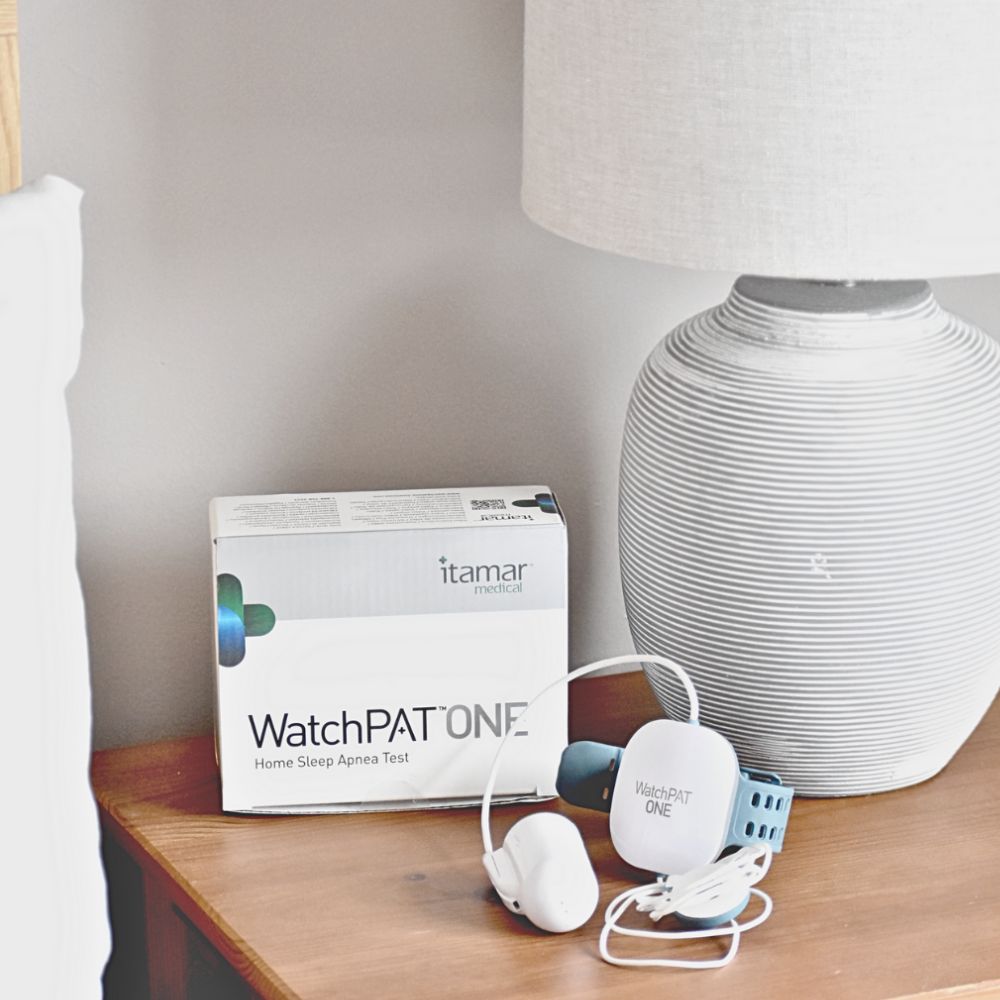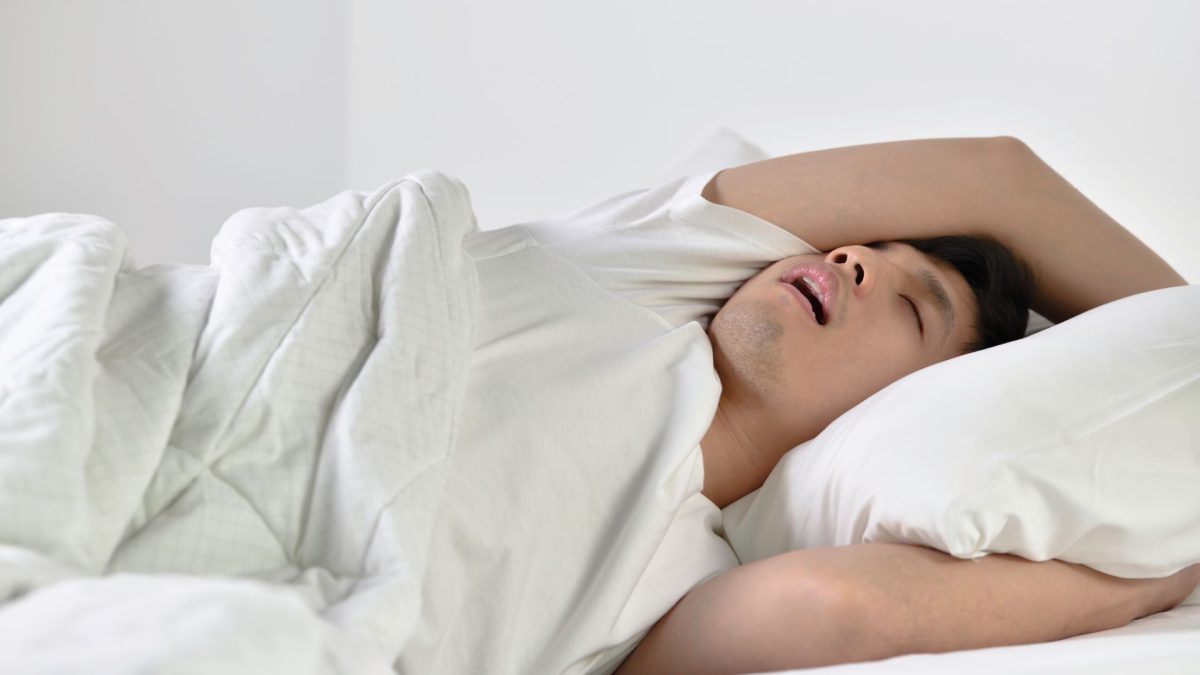Fact Checked
Intus Healthcare’s writers, customer service team, and sleep experts review and ensure this information is accurate.
Last updated on April 2nd, 2024 at 10:34 am
Are you concerned about oversleeping? If you are regularly sleeping too long, it could indicate an underlying health condition.
How many hours of sleep should we get each night?
Most of us have heard that sleeping between seven and nine hours every night will produce the most optimal health benefits. However, this is only partially true. The amount of rest that we require will also depend upon our age.
Sleeping helps restore damaged tissues, produce essential nutrients, and maintain mental equilibrium. For example, infants can often sleep between twelve and sixteen hours daily. Sleeping like this is understandable, as their bodies are growing extremely fast(3).
As we age, sleeping patterns tend to change. When we reach adulthood (older than twenty-five), most people require between seven and nine hours of rest. This number only slightly decreases (between seven and eight hours) for those who are over the age of sixty-five.
Table of Contents
Possible causes of oversleeping
The term for oversleeping is hypersomnia(1). This is a medical condition which affects between two and four per cent of people (2)
If you experience this, you might feel excessively tired during the day (potentially falling asleep several times) or sleep longer than usual at night. Those with hypersomnia may need as much as twelve hours of sleep each night to feel rested.
Possible causes include:
- Sleep Apnoea
- Insomnia
- Depression
- Epilepsy
- Obesity
- Multiple sclerosis
- Narcolepsy
- Heart disease
- Side effects of certain medications
It can also come from a physical condition such as a tumour, injury to the central nervous system or head trauma.

Symptoms of hypersomnia
If you experience any of the following symptoms, you should seek advice from a medical professional.
Symptoms of hypersomnia, which could be the cause of why you are sleeping so much, include:
- Anxiety
- Hallucinations
- Slow speech
- Poor memory
- Daytime fatigue
- Difficulty waking up after a long sleep
Other factors which contribute to oversleeping
One reason you may be sleeping so much is the physical stress our bodies endure daily.
Those employed in the construction sector will likely require more time for their bodies to heal nightly than those working in an office environment.
Illness and stress will likewise affect our sleeping patterns. Those recovering from an ailment might need more rest as their bodies are still healing. Furthermore, anyone experiencing a significant amount of stress could also need more time to “recharge their batteries” due to the debilitating impacts of these emotions on the body.
Other causes of oversleeping could be down to:
- Diet
- The consumption of stimulants or sedatives
- Environmental factors such as temperature and humidity
Now that we understand what could cause you to oversleep, it’s also important to understand the health risks of oversleeping.

Oversleeping and its link to Sleep Apnoea
Oversleeping can also result from Obstructive Sleep Apnoea (OSA).
Daytime fatigue is a common symptom of OSA. If left untreated, you could very well fall into a pattern of sleeping too much on sporadic occasions. OSA and oversleeping also increase the risk of high blood pressure( hypertension), depression, poor memory and concentration, headaches, and anxiety.
Trying to break the pattern of oversleeping can be difficult, and it is easy to see how daytime fatigue can build up, resulting in the need to sleep for longer durations to compensate for sleep loss. Daytime fatigue also puts you at risk not only to yourself but others around you, affecting your ability to focus, especially if you drive or operate heavy machinery.
Research has found that a short sleep duration, defined as less than seven hours, raised people’s risk for death by twelve per cent, and people who slept more than eight or nine hours a night were thirty per cent more at risk(4). So, if this is something you are struggling with, we advise you to seek guidance from a medical professional as soon as possible.
How to stop oversleeping
Sleep experts can help you identify what might be causing you to oversleep. You may be required to participate in a sleep study over several nights in a clinic to get a full understanding of your sleeping patterns in order to provide a treatment plan specific to you. Following this, you can begin to make proactive changes over time, which will help you start the path to recovery.
In the meantime, you can look at factors such as your sleep and wake routine and understand your circadian rhythm. Your circadian rhythm is like a 24-hour timer in your brain, which decides when you feel awake and when you feel sleepy, depending on how light or dark it is around you. A good bedtime routine, including avoiding using blue light technology before sleep and making sure you have an ideal sleeping environment, can make a difference in your sleeping habits. Building an evening routine, which includes reading an hour before settling to sleep, can really help to calm the mind.
Setting an alarm at the same time each day can also help to build a better sleep routine, as well as making time for mindful activities to reduce stress levels, helping you to drift off to sleep easier.
If you have already tried these and still wonder, ‘Why am I sleeping so much?’ then a Sleep Test could provide a greater insight.
To determine if Sleep Apnoea is the reason you’re sleeping so much, take our free Sleep Apnoea risk assessment today.
Why an In-Home Sleep Test can help you to stop oversleeping
If you suspect that Sleep Apnoea is the main reason you oversleep. You should take an In-Home Sleep Test as soon as possible. This quick analysis takes just one night to collect the data, and our sleep experts will provide a comprehensive report as to whether Obstructive Sleep Apnoea is present. If your test results show that OSA is present, we can advise on the numerous effective solutions, such as the nightly use of a CPAP (continuous positive airway pressure) machine, which can transform your sleep.
In-Home Sleep Test
Test from the comfort of your own home and get results within two working days.
Our NHS-trained sleep technicians will review your data and provide you with an insightful report to advise on the next steps to getting the sleep you deserve.

Oversleeping does not necessarily signify that you are “lazy”. It could signal that a very real physiological or emotional problem may be present. Contact us today for further information and guidance on how to stop oversleeping.
References
- National Institute of Neurological Disorders and Stoke (2023) ‘ What is hypersomnia’ Available at: https://www.ninds.nih.gov/health-information/disorders/hypersomnia#:~:text=Hypersomnia%20refers%20to%20medical%20conditions,or%20interrupted%20sleep%20at%20night. Accessed 14.09.2023
- Peppard, P., Plante, D., Hagen, E., Barnet, J., & Mignot, E. (2022). 0414 estimated prevalence of idiopathic hypersomnia in the Wisconsin sleep cohort. Sleep, 45(Supplement_1). https://doi.org/10.1093/sleep/zsac079.411
- Eric Suni and Dr Abhinav Singh (2023) ‘How Much Sleep Do You Need?’ Available at: https://www.sleepfoundation.org/how-sleep-works/how-much-sleep-do-we-really-need Accessed 15.09.2023
- AASM Sleep Education. (2022, September 30). Mortality study warns against abnormal sleep lengths. Sleep Education. https://sleepeducation.org/mortality-study-warns-against-abnormal-sleep-lengths/




